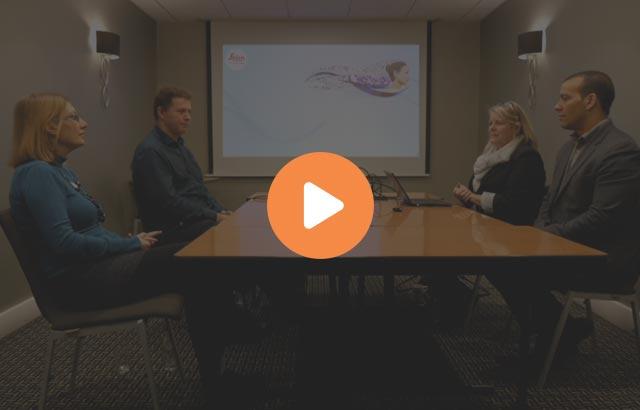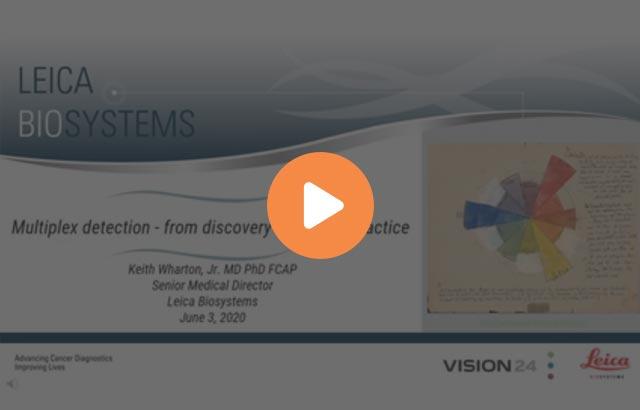Modernization of Tissue-based, Biomarker-led Clinical Research

Automated staining platforms and digital slide scanners have revolutionized tissue-based biomarker research by providing a powerful platform in which to conduct reproducible, quantitative biomarker-led studies at scale.
Use of machine learning and artificial intelligence approaches to analyze these biomarkers enables sensitive, specific, and rapid biomarker assessment in situ. In this talk, we will be reviewing the implementation and technical challenges faced in modern tissue-based, biomarker-led research from wet-lab validation to digital assessment. To do so we will review published work from our lab that has utilized automated staining and slide digitization as an aid to clinical research (for research use only. Not for use in diagnostic procedures) in immunohistochemistry, RNA in situ hybridization, multiplex immunofluorescence, and artificial intelligence studies.
Learning Objectives
- Learn how automated staining and slide digitization can reduce staining variability and aid in quantitative biomarker assessment at scale
- Understand how digitization of molecular pathology assessment lends itself to multi- and cross-disciplinary research investigations
For Research Use Only. Not for use in diagnostic procedures.
About the presenter

Stephanie is a Lecturer in Precision Medicine at the Patrick G. Johnson Center for Cancer Research, Queen’s University Belfast. She has a breath of experience in the application and validation of translational cancer research methodologies using molecular pathology techniques (immunohistochemistry, in situ hybridisation, multiplex immunofluorescence) and statistics. Her research focuses on predictive biomarker studies and understanding confounding variables that influence the prediction of poor prognosis subgroups in cancer research including reproducible study design, choice of molecular test and assessment criteria.
Related Content
Die Inhalte des Knowledge Pathway von Leica Biosystems unterliegen den Nutzungsbedingungen der Website von Leica Biosystems, die hier eingesehen werden können: Rechtlicher Hinweis. Der Inhalt, einschließlich der Webinare, Schulungspräsentationen und ähnlicher Materialien, soll allgemeine Informationen zu bestimmten Themen liefern, die für medizinische Fachkräfte von Interesse sind. Er soll explizit nicht der medizinischen, behördlichen oder rechtlichen Beratung dienen und kann diese auch nicht ersetzen. Die Ansichten und Meinungen, die in Inhalten Dritter zum Ausdruck gebracht werden, spiegeln die persönlichen Auffassungen der Sprecher/Autoren wider und decken sich nicht notwendigerweise mit denen von Leica Biosystems, seinen Mitarbeitern oder Vertretern. Jegliche in den Inhalten enthaltene Links, die auf Quellen oder Inhalte Dritter verweisen, werden lediglich aus Gründen Ihrer Annehmlichkeit zur Verfügung gestellt.
Vor dem Gebrauch sollten die Produktinformationen, Beilagen und Bedienungsanleitungen der jeweiligen Medikamente und Geräte konsultiert werden.
Copyright © 2025 Leica Biosystems division of Leica Microsystems, Inc. and its Leica Biosystems affiliates. All rights reserved. LEICA and the Leica Logo are registered trademarks of Leica Microsystems IR GmbH.


